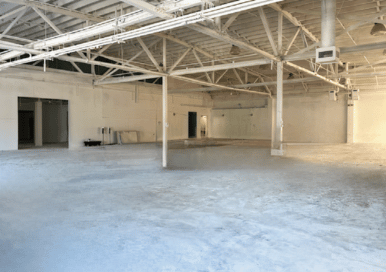
3151 Zanker Rd
San Jose, CAHigh END Flex Space. Robust HVAC System & Heavy Power.

Are you thinking of selling a commercial property? If so, it is of utmost importance to calculate the correct cost or tax basis of your asset.
But, what is a cost basis, what does cost basis mean? By calculating the tax basis on commercial real estate, you can successfully avoid higher capital taxation gains – once the property is sold.
Here’s a (kind of) complete guide to determining the tax basis on commercial real estate. Hopefully, some of these theses will help you understand the whole process better.
If not, I am more than glad to answer any additional remarks and questions. Feel free to contact me, or any of my IPG colleagues.
It is also necessary to determine all the ins and outs of the tax basis before you sell since the tax basis plays a role in determining depreciation.
Please note that IPG is not giving tax advice. This is simply informational, and my wish is to help you clarify all the (sometimes) cloudy terminology. Your CPA or tax advisor is there to act based on your individual situation.
So, what is the cost basis?
Tax basis is the cost of the property paid in cash plus debt obligations or other property. It is determined by adding settlement and closing costs to the purchase price of the property. These are the usual following costs included when calculating tax basis:

High END Flex Space. Robust HVAC System & Heavy Power.

Premier Potrero Hill Standalone Building.
At the same time, some of the costs following the tax basis on commercial real estate cannot be included:
Without proper tax basis planning, you can end up paying double taxes; thus capital improvements increase the basis, while depreciation decreases the cost basis.
The tax basis in real estate allows CRE investors to deduct depreciation rates from any commercial real estate building. Usually, these capital improvements do not include land as a depreciable asset.
Also, these deductions do result in higher capital gains taxes when the property is sold. For example, if the value of the sold property is higher than its depreciated value, you will have to pay additional taxes in the case of a sale.
We have talked about the benefits of the 1031 exchange, which you can study HERE, but what does it have to do with a tax basis?
Well, 1031 exchanges allow you to defer capital gains tax through a properly structured exchange.
When you want to sell a property and buy another one through a 1031 exchange, the basis of the old property will be transferred to the new property.
For example… If the original property is sold for $2,500,000 with a tax basis of $750,000, then $750,000 would be conveyed to the new property.
The new tax basis in commercial real estate is referred to as “boot”.

When it comes to the real estate tax basis calculator, there are at least three things to be aware of. First, you have to take into consideration all of the closing costs related to the purchase.
Secondly, deduct lender fees, points, loan fees, or mortgage insurance premiums from the (above mentioned) number.
Furthermore, calculate the amount spent on capital improvements. Improvements made to upgrade the value of the property, such as:
Finally, deduct the amount of depreciation that was claimed on the income property. This final amount is now on your adjusted tax basis.
When it comes to owning a property, be sure to keep all documents (of repairs, improvements, or replacements), so you can use them to calculate cost basis. However, capital repairs can be costly and complex, so it is best to consult your accountant or tax professional.
Let’s wrap up…
Understanding the tax basis on commercial real estate can preserve you thousands of dollars in capital.
Whether you plan to sell or not, be precise with your cost calculation and consult your financial advisors.
A proper tax basis calculation is the key factor for preserving tax basis advantages.
If you would like answers to any tax basis questions or would like to talk about selling, buying, or using the 1031 exchange to diversify your CRE portfolio, IPG Advisors is here to help and guide you throughout future property opportunities.